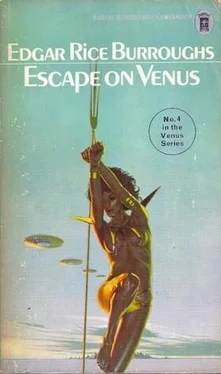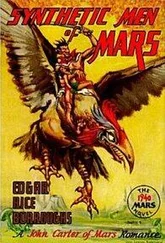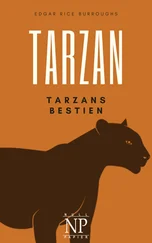Edgar Burroughs - Escape on Venus
Здесь есть возможность читать онлайн «Edgar Burroughs - Escape on Venus» весь текст электронной книги совершенно бесплатно (целиком полную версию без сокращений). В некоторых случаях можно слушать аудио, скачать через торрент в формате fb2 и присутствует краткое содержание. Жанр: Прочие приключения, на английском языке. Описание произведения, (предисловие) а так же отзывы посетителей доступны на портале библиотеки ЛибКат.
- Название:Escape on Venus
- Автор:
- Жанр:
- Год:неизвестен
- ISBN:нет данных
- Рейтинг книги:5 / 5. Голосов: 1
-
Избранное:Добавить в избранное
- Отзывы:
-
Ваша оценка:
- 100
- 1
- 2
- 3
- 4
- 5
Escape on Venus: краткое содержание, описание и аннотация
Предлагаем к чтению аннотацию, описание, краткое содержание или предисловие (зависит от того, что написал сам автор книги «Escape on Venus»). Если вы не нашли необходимую информацию о книге — напишите в комментариях, мы постараемся отыскать её.
Escape on Venus — читать онлайн бесплатно полную книгу (весь текст) целиком
Ниже представлен текст книги, разбитый по страницам. Система сохранения места последней прочитанной страницы, позволяет с удобством читать онлайн бесплатно книгу «Escape on Venus», без необходимости каждый раз заново искать на чём Вы остановились. Поставьте закладку, и сможете в любой момент перейти на страницу, на которой закончили чтение.
Интервал:
Закладка:
“They slipped up upon us at night and swarmed our deck. It was a great battle, Prince—twenty against a hundred; for our galley slaves were no good to us, and the sailors of our ship were little better.
“Our officer was killed in the first clash; and I, Artol, took command. The captain of the ship, terrified, was in hiding; so the command of the ship as well devolved upon me. We fought as only the jong’s bodyguard knows how to fight, but five to one are heavy odds. And then they armed their galley slaves and turned them upon us, forcing them to fight.
“Still we held our own. The decks were red with blood. As we cut them down, more threw themselves upon us—two for every one we killed; and then I saw that the tide had changed—it was running out of the lake into the ocean.
“So far we had been able to hold the hatch leading from the fighting deck to the deck where the galley slaves sat at their oars, and I sent a good man down there with his orders; then, with my own hands, I slipped the anchor. I shouted the command to row, and leaped to the tiller.
“The ship swung around and headed for the ocean, dragging the enemy ship with it. It was certain that one of the ships would be wrecked, and quite probably both. The Myposans ran for their own ship just as some of their fellows cut her loose from us. We were caught in the swirling rush of the waters racing from the lake into the ocean.
“I could hear the crack of the whips on the slaves’ backs as the galley masters urged them to greater effort, for only by tremendous effort could they give the ship steerage way in that racing torrent.
“I am a soldier and no sailor, but I guided the ship through the channel in the darkness of night until it floated at last on the bosom of the ocean; then the captain came out of hiding and took command. Instead of thanking me for saving his ship, he berated me for slipping the anchor.
“We had words, then; and I told him that when we returned to Japal I should report to the jong himself that he had hidden all during the battle when he should have been on deck defending this ship. That is why I am here.”
“But I do not understand,” said Kandar.
“Wait. I am not through. Presently you shall know. When I checked up after the fight, I found that only ten of us remained; and five of these were wounded. Also, we had eleven Myposan prisoners—eleven who had been unable to reach the deck of their ship after it had been cut loose. These were sent down to the galley masters to help man the oars.
“In due time we reached Torlac, unloaded our cargo and took on another for Japal. The return trip was uneventful until after we entered the Lake of Japal. We lay to at the lower end of the lake so that we should pass Mypos after dark, as is the custom. Then we rowed slowly and silently up the lake, with no lights showing on the ship.
“It was quite dark. One could not recognize faces on deck. There was a great deal of movement there I thought, men passing to and fro constantly. We came opposite Mypos. The lights of the city were plainly discernible.
“Some one said, ‘What is that—right there to starboard?’ At that, I and my warriors moved to the starboard rail. I had no more than reached it than some one seized me around the waist, leaped to the rail with me, and then into the lake.
“It was a Myposan! You know how these fellows swim, my prince. Half the time he had me under water, half drowned; but at last he dragged me ashore at Mypos, more dead than alive. When I could gather my breath and my wits I found myself in a slave compound with all my men. Later I learned the truth.
“The captain, fearful that we would report him to the jong, had liberated the Myposans with the understanding that they would take us prisoners. As a matter of fact he had stipulated that they were to drown us, but the temptation to take us in as prisoners whom they might sell into slavery was too much for them. It saved our lives.
“So that, my prince, is how I came to be a slave in Mypos; and I live only to return to Japal and have the life of the coward and traitor who sent ten of the jong’s bodyguard into slavery.”
“Who was this captain?” asked Kandar.
“His name is Gangor.”
Kandar nodded. “I know much of him,” he said, “but nothing good. It was rumored that he was high in the councils of the party that has long sought to overthrow the jong, my father.”
That name meant nothing to me then. It was to mean much, later.
X
As we three talked, the major-domo came sinuously toward us, more shark-like than ever. “You stand here and talk, slaves,” he accused, “when you should be watching for guypals. For this you should be beaten.. Separate! Patrol the pool. If a child is harmed you all die—most unpleasantly.”
So we fell to walking around the pool with the other two guards, and some of us were always looking up at the sky; though for what, I hadn’t the remotest idea.
After the major-domo left the patio, I fell in beside Kandar. “What are guypals?” I asked.
“They are large birds of prey,” he said—“really very dangerous. If it were not for the guards they would come down and carry off the children. As it is, guards or no guards, you never can tell when they will come. If they do, some of us may be killed. They are terrific fighters and absolutely without fear.”
It seemed to me a lot of foolishness, guarding children against birds, when there weren’t any children nor any birds. At least I hadn’t seen any. It would have been much more sensible, I thought, to let us sit down and rest until the children came out into the patio.
As guypals don’t fly at night, we were dismissed as soon as it got dark, and taken to the slaves’ compound, where we were fed a nasty mess and herded into a shed to sleep on filthy grass mats. Yron’s slaves evidently didn’t fare any too well.
I wondered about Duare. Was she being well treated? Was she safe? Would I ever see her again? I fell into a fitful sleep worrying about her.
At dawn the next day, after a vile breakfast, we were taken to the patio again and told to look out for guypals and guard the children. “If the guypals are as dangerous as you say,” I remarked to Kandar, “why do they give us wooden tridents? What can we do with a piece of wood against such fierce birds?”
“All we can do is the best we can,” he said. “They are afraid to arm us with metal tridents—we might turn on them. You know, these Myposans are at heart arrant cowards.”
“Well, I hope I see a guypal today,” I said—“anything to break the monotony. I’d even like to see one of their children—it might attract a guypal or two. Where do they keep these children of theirs, anyway?”
Kandar laughed and pointed into the pool. “There,” he said. “There are the children.”
I looked into the pool, but saw nothing but the few strange looking fishes I had occasionally seen the previous day. “I see nothing in there,” I said, “but a few weird-looking fishes.”
“Those are the children,” said Kandar.
I looked at him in surprise for a moment, until I got the idea.
“I see,” I said. “We have people like that in my own world; being childless, they lavish their affection on dogs and cats. These people have adopted fishes.”
Kandar shook his head. “You are quite wrong on both scores,” he said. “In the first place these people have no affection to lavish on anything; and, in the second, these are their children,” and he pointed to the fishes swimming playfully about the pool.
“You are very amusing,” I said.
“I didn’t intend being. I am really quite serious. You see, these fishlike creatures are really the children of Yron and his mate.”
Читать дальшеИнтервал:
Закладка:
Похожие книги на «Escape on Venus»
Представляем Вашему вниманию похожие книги на «Escape on Venus» списком для выбора. Мы отобрали схожую по названию и смыслу литературу в надежде предоставить читателям больше вариантов отыскать новые, интересные, ещё непрочитанные произведения.
Обсуждение, отзывы о книге «Escape on Venus» и просто собственные мнения читателей. Оставьте ваши комментарии, напишите, что Вы думаете о произведении, его смысле или главных героях. Укажите что конкретно понравилось, а что нет, и почему Вы так считаете.









